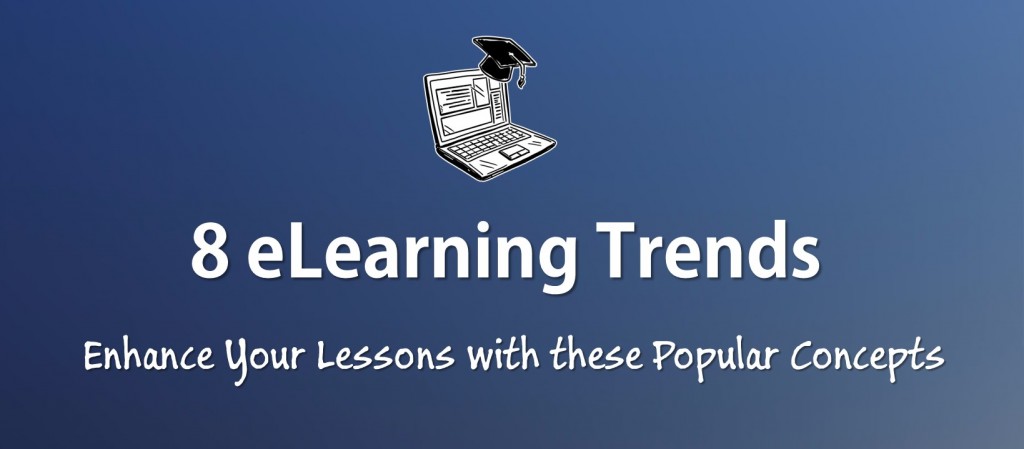If you spend time hanging around education blogs and social networks, you will have noticed the rising number of elearning trends out there, most of which claiming that they are the ‘ultimate’ one.
 In this context, it might be difficult to separate the wheat from the chaff and select the trends that will add value to your lessons. Identifying key elearning trends is especially tough considering the fact that different names are used to refer to the same concept, causing even further confusion.
In this context, it might be difficult to separate the wheat from the chaff and select the trends that will add value to your lessons. Identifying key elearning trends is especially tough considering the fact that different names are used to refer to the same concept, causing even further confusion.
For instance, consider the following learning strategies: case-based learning, challenge-based learning, project-based learning, problem-based learning, team-based learning, work-based learning, inquiry-based learning and passion-based learning.
It’s a lot to handle, right?
Wait! Do you want to know a secret? All of them are actually the same thing so don’t let confusing names trick you! Below we share the most outstanding elearning trends of the moment so you can clear your mind and see the big picture.
1. Flipped Classroom
This trend is arguably the most popular in the modern classroom. It consists of turning the traditional flow of a classroom ‘upside down’. This way, students do their homework before going to class so the limited time they have with the teacher is used to focus on more engaging and enriching activities.
2. Project-Based Learning (PBL)
As mentioned in the introduction of this post, this trend might be referred as a variety of names. However, its principles are quite clear and leave no room for doubts. The idea behind PBL is to extend learning beyond the theoretical concepts so students can face real projects, similar to those in the working environment. Discover more about project-based learning here.
3. Deeper Learning
Deeper learning empowers students to apply core-academic knowledge to real-life situations. Since this trend focuses on learning by doing, it has some similarities with the project-based learning approach; however, there are some important differences. Discover more about deeper learning here.
4. Gamification
One of the key elements in the learning process that all experts agree on is student motivation and that’s precisely the core of gamification. Gamification means turning learning into a game so students progress without even realising. This method has been applied for years in pre-school education and in specific subjects with great results so why not apply it to more areas?
5. Mobile Learning
Mobile devices are a big part of our daily life. I bet you’re using it right now to read this post or, at least, it’s within your reach. Am I right? That’s why mobile devices are the best tool to prolong your learning and to access study content everywhere at any time.
6. Bring your Own Device (BYOD)
While the concept of mobile learning appeals mainly to students, BYOD focuses on the teaching perspective and encourages every student to bring their own device to class in order to follow the lesson. In this sense, there are a vast number of education apps that teachers can use to design an engaging lesson. Why don’t you try ExamTime Mobile now?
7. MOOCs
Massive open online courses have been popularised by top universities in the last few years. This trend allows any person to access quality education regardless of your demographic and financial situation. It has proven to be a win-win scenario that will continue to thrive in the future.
8. Blended Learning
Even though some people might get confused by its name, the reality is that this trend is already in place in the majority of institutions. It consists of splitting learning between the online and offline world.

No comments :
Post a Comment